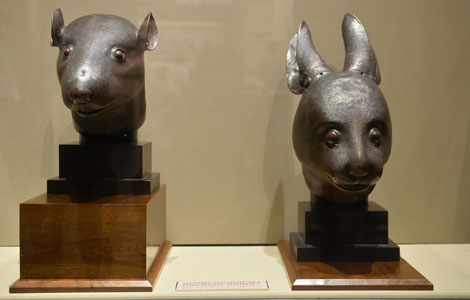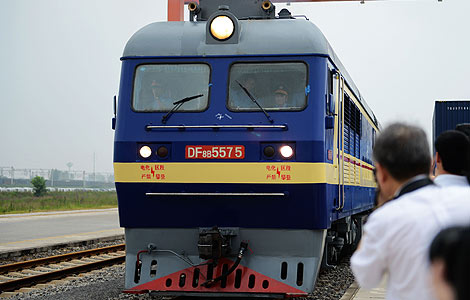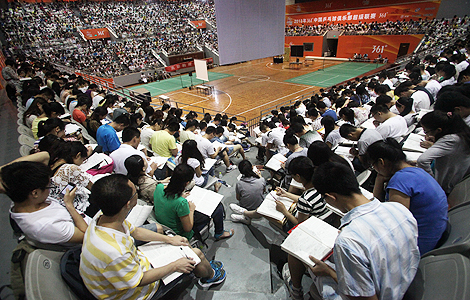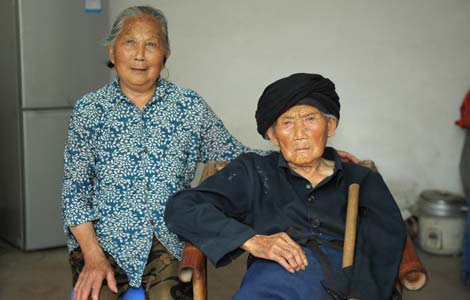

Overseas success
"Running a club in a foreign country is very practical. Business is business," said Liang Dongsheng, a kungfu master from Foshan who has been teaching Wing Chun in Mauritius since 1984.
|
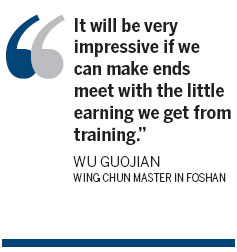 |
He said one hour of training in Wing Chun can cost as much as 25 euros ($35) in France, although the rate is lower in less developed countries.
Liang's operation is basically a karate club, but it also provides Wing Chun courses and services ranging from Chinese bone-setting methods to acupuncture. For important occasions, such as the Chinese Spring Festival, he usually leads a team in performing the traditional lion dance to generate income.
He believes that diversifying a martial arts club's services and operating it in a businesslike way are keys to success.
Teaching martial arts "will not last long without an economic basis", he said. "Take Shaolin Temple, for example. Although some people think it's against tradition, it has kept pace with times and developed very well, at least by appearances."
The Buddhist temple, known for its kungfu and qigong practices in central China's Henan province, has sparked controversies with every commercialized step it takes, such as establishing a restaurant and medicine company and shooting movies about itself. Its abbot, Shi Yongxin, who holds a master's degree in business administration, is praised for his aggressive business endeavors and criticized for leading the temple too far in commercialization.
In Foshan, the martial arts are not related to religion, but some masters fear commercialized operations may change Wing Chun teaching, which is based on a master-disciple relationship rather than production-line teaching.
Other masters see commercialization as a means to sustainably develop the martial arts.
"It will surely be good to combine martial arts and commerce as it's a way to make something big," said Hu Chongpin, a master with Nanquan Development Center. Foshan is a center for some 50 kinds of nanquan, Chinese boxing styles that originated in South China.
"What we have in television and movies is just a fraction of the rich martial arts resources," Hu said, "and if there are companies that develop movies, sitcoms, books and others based on nanquan stories, this may outshine Shaolin Temple."
But he can't help giving a disappointed sigh. "A single martial arts club is just too small to realize it." And a big change in martial arts' commercialization from the bottom up is not likely to happen without strong support from the government, he said.
"Many of the ideas to develop Foshan's martial arts have ended up in lip service," said Xue Mianben of the Foshan association. Martial arts can't compare with industries that contribute greatly to the economy, he said, so they may seem less important to the government.
"It needs a change in ideas about how to develop the martial arts culture," said Guan Runxiong, president of Nanhai Sports Federation, a semiofficial organization under Nanhai district, Foshan.
